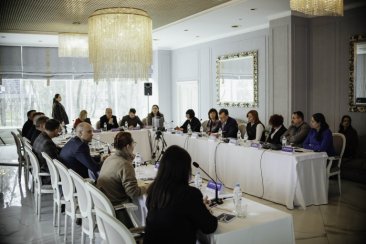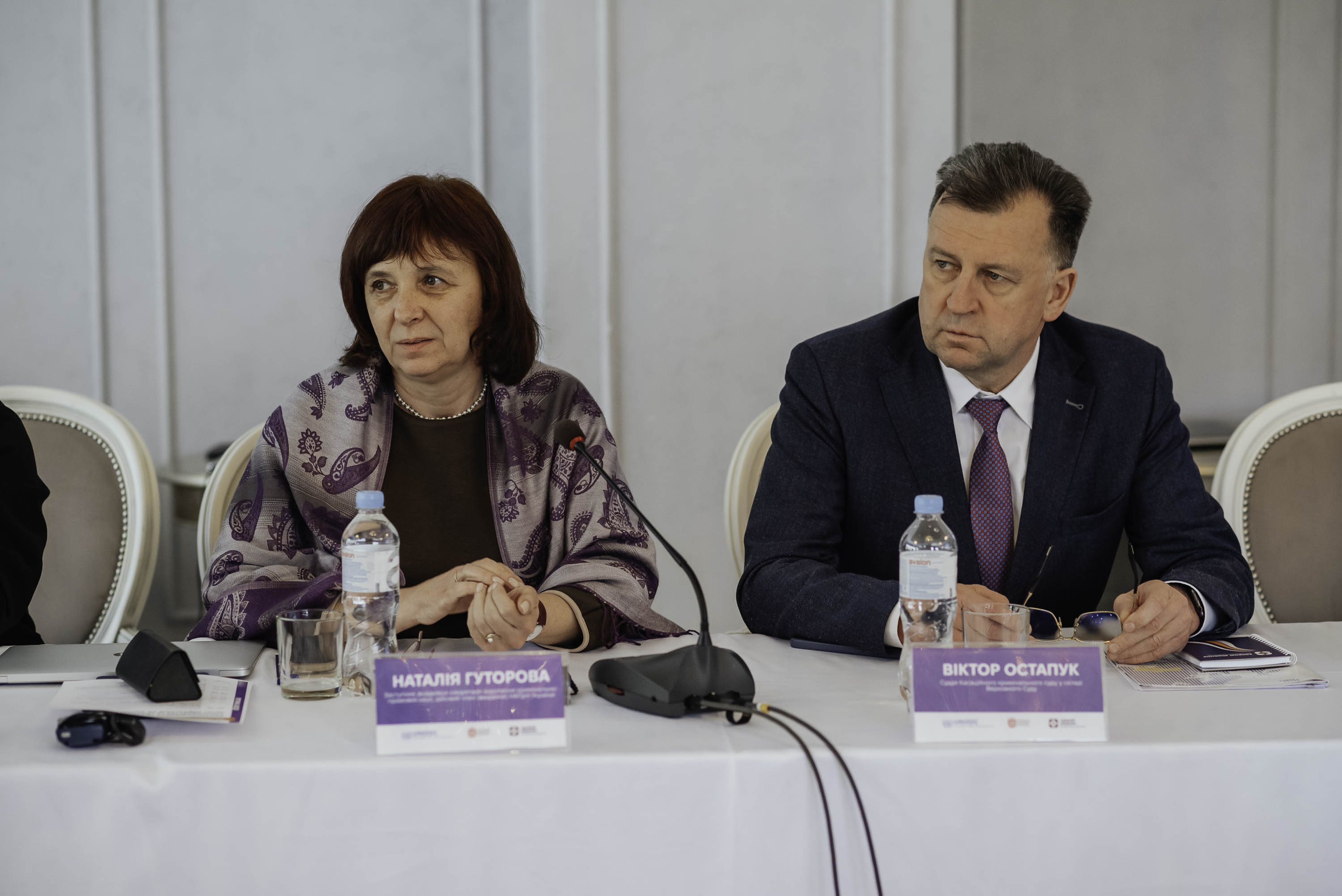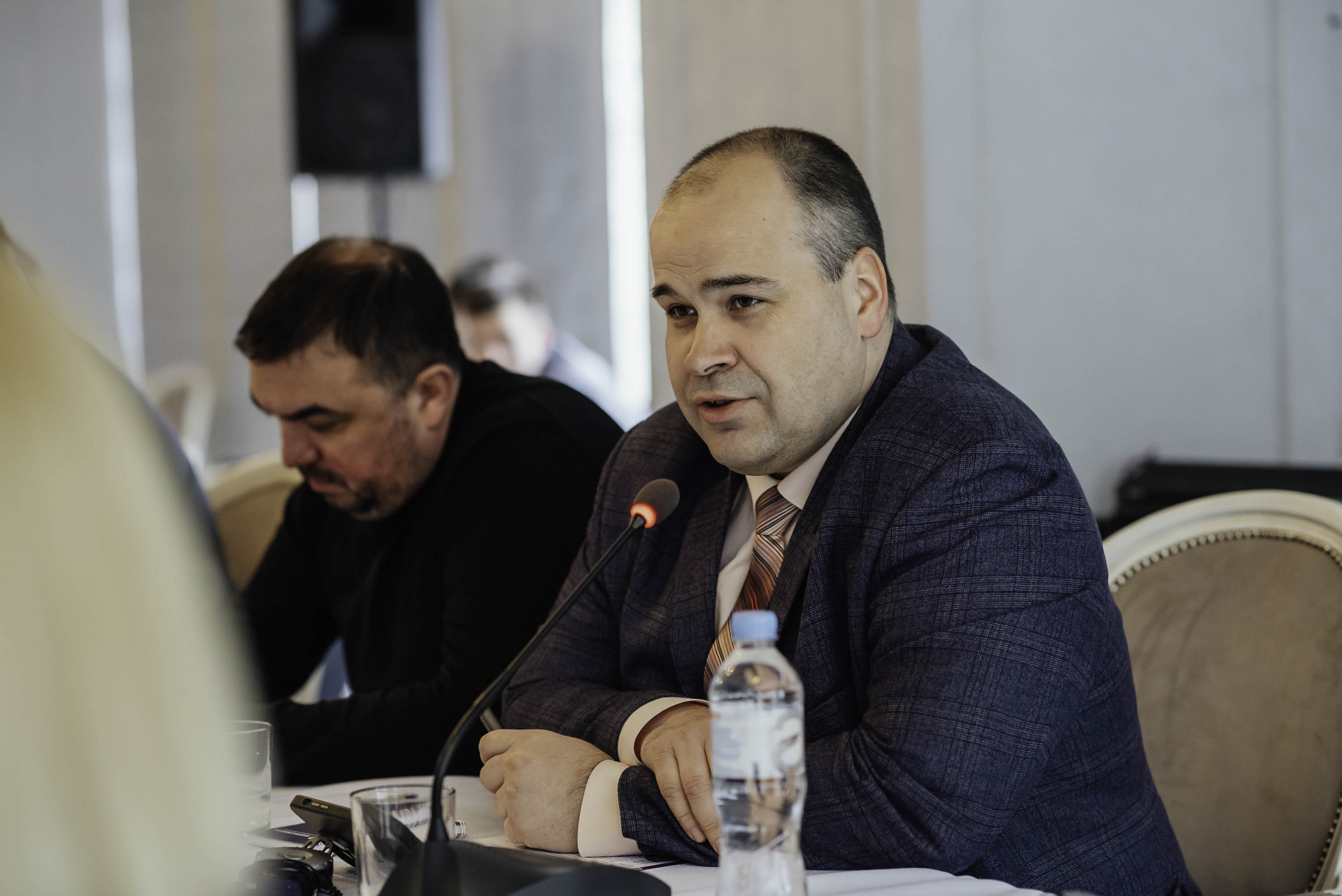Contact center of the Ukrainian Judiciary 044 207-35-46

Mykola Mazur, Judge of the Grand Chamber of the Supreme Court, and Viktor Ostapuk, Judge of the Criminal Cassation Court of the Supreme Court, took part in a roundtable discussion on sentencing for drug-related criminal offences and the search for alternative legal approaches in this area.
In his speech, Viktor Ostapuk focused on a new type of punishment - probationary supervision, which is provided for in Article 59-1 of the Criminal Code of Ukraine.
'Probationary supervision is a form of punishment that combines restrictions on the rights and freedoms of a convicted person with supervisory and social-educational measures without isolation from society. It is similar in approach to release on probation, but has a different legal nature: it is a full-fledged punishment, not its replacement,’ Viktor Ostapuk noted.
The judge gave an example of the application of probation supervision for crimes under Part 1 of Article 309 of the Criminal Code of Ukraine and reminded of the obligations imposed on convicts: to report to the authorised body, to notify of a change of place of residence or work and not to leave Ukraine without permission.

The speaker paid special attention to the possibility of imposing additional obligations by the court, in particular, to undergo treatment for drug or alcohol addiction. At the same time, according to the judge, this issue is controversial, as the law does not make it mandatory to impose such measures - it is at the discretion of the court.
‘There is a category of convicts who have multiple convictions and persistent addiction. The introduction of probation supervision makes it possible to apply a more individualised approach, in particular through motivation for treatment. However, it is important that legislative mechanisms work in a balanced manner, taking into account both the public interest and the rights of the individual,’ the judge concluded.
During his speech, Mykola Mazur presented the latest statistics on convictions for drug-related criminal offences, in particular under Articles 305-320 of the Criminal Code of Ukraine.
According to the judge, in 2024, more than 12,000 people were convicted of this category of criminal offences, of which more than 9,000 were convicted under Part 1 of Article 309 of the Criminal Code of Ukraine (‘Illegal production, manufacture, purchase, storage, transportation or transfer of narcotic drugs, psychotropic substances or their analogues without the purpose of sale’).

‘The fact that the majority of sentences relate to Part 1 of Article 309 of the Criminal Code of Ukraine is a remarkable statistical anomaly that should be taken into account when formulating criminal law policy to combat drug trafficking,’ the judge said.
In the context of the comparative analysis, Mykola Mazur cited examples of case law from the United States, Argentina and Georgia, where courts have declared unconstitutional the provisions that provide for criminal or administrative liability for the possession of small doses of cannabis for personal use, provided that it is used without harming third parties.
The judge also focused on the Supreme Court's case law, which covers the issues of insignificance of an act, special exemption from criminal liability, as well as the effect of criminal law in time, taking into account changes in subordinate legislation.
'We see that the rethinking of approaches to combating drug-related crimes is already underway, both at the legislative level and in case law. However, it is important to find a balance between the need to protect society from the negative consequences of drug trafficking and a humane approach to people in need of medical care, which is increasingly being discussed as opposed to repressive intervention,’ the judge concluded.
The judges' presentations are available by the following links:
Viktor Ostapuk's presentation – https://court.gov.ua/storage/portal/supreme/prezentacii_2025/Prezent_pruznach_pokar_narkozlochunu.pdf;
Mykola Mazur's presentation – https://court.gov.ua/storage/portal/supreme/prezentacii_2025/Prezent_Prakt_VS_pravopor_narkot.pdf.
The event was organised by the Charitable Foundation ‘Health Solutions’ in cooperation with the UN Office on Drugs and Crime in Ukraine and the School of Law of the Ukrainian Catholic University.
Photo courtesy of the organisers.